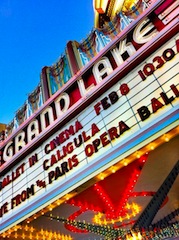 In the early days of digital cinema, advocates of the new technology said one of the best things about it was the ability it gave theatre owners to show all kinds of content, not just Hollywood movies. The studios scoffed at this and labeled anything they didn’t produce as, essentially, worthless garbage. One early term was ODS, which stood for Other Digital … well, you get it. The industry eventually settled on the name alternative content, although many of us asked, “Alternative to what?” Increasingly these programs are called event cinema and more than a dozen companies around the world supply a wealth of different kinds of entertainment and educational fare. In turn, a rapidly growing number of theatres charge premium ticket prices for an ever-expanding variety of these events and attendance continues to grow.
In the early days of digital cinema, advocates of the new technology said one of the best things about it was the ability it gave theatre owners to show all kinds of content, not just Hollywood movies. The studios scoffed at this and labeled anything they didn’t produce as, essentially, worthless garbage. One early term was ODS, which stood for Other Digital … well, you get it. The industry eventually settled on the name alternative content, although many of us asked, “Alternative to what?” Increasingly these programs are called event cinema and more than a dozen companies around the world supply a wealth of different kinds of entertainment and educational fare. In turn, a rapidly growing number of theatres charge premium ticket prices for an ever-expanding variety of these events and attendance continues to grow.
Most of the pioneers in alternative content did not wait for Hollywood and mainstream exhibitors to resolve their differences on digital cinema technology and established their businesses with a wide range of projection systems and media. A typical arrangement was to use high definition projectors and Blu-ray discs to present their programs in smaller theatres or other venues. Many still use systems like that but most have transitioned to full DCI-compliant systems.
Digital Cinema Report reached out via email to every alternative content company in the industry and asked them to answer the same set of questions. Six companies – CineMuse, CinemaLive, D&E Entertainment, Emerging Pictures, NCM Fathom and Rising Alternative – and the Event Cinema Association, a European trade group, responded. (Full disclosure: Melissa Keeping, the ECA’s chair and founder, is also the European correspondent for Digital Cinema Report.)
Here, in alphabetical order, is what the seven companies had to say about the past, present and future of event cinema.
CineMuse
Please introduce yourself and your company. When was your company founded? What prompted you to enter this market?
CineMuse was founded in 1995 (or was it 1885?) and provides HD and 3D content to digital cinemas in museums, zoos, aquariums, and science centers.
How many employees are there in your company and what are their roles?
We have one-man shops in the US and Canada. Most of our work is outsourced.
If this question is applicable, how many theatres are there in your network?
There are 15 exclusive members of the CineMuse Network.
What particular niche does your company serve?
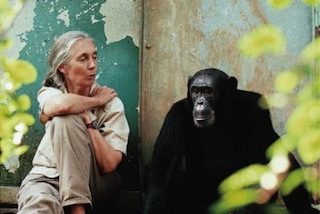 Scientific and cultural institutions…
Scientific and cultural institutions…
How do you market your business?
Direct sales, e-marketing, and conferences.
What are the questions that potential customers ask you?
It used to be "How does this work and what is it?" Now, it's "What content do you have, how long is it, and what does it cost?
What have been your biggest successes to date?
Distribution partnerships with Discovery, NHK, Rabbit Ears, Off the Fence, and BBC.
What kinds of content, if any, don’t seem to find a viable audience?
I wish art museums saw value in content that provides context for their collections.
What success, if any, have you had with 3D programs?
Just started working with a couple companies – too early too tell.
What is your opinion of the term alternative content?
Seems clear and appropriate to me.
How do you distribute content?
We load our content on a server and ship to each site, then send update files as they order new content.
What is your ticket-pricing model?
Generally, our sites offer content as part of an admission package, sometimes at an additional cost.
What technology issues, if any, need to be resolved for alternative content to thrive and grow?
None.
From your perspective, what is the biggest change in the alternative content business in the last ten years?
It's been almost 20 years for us. We've seen our clients' and prospects' understanding and interest grow as they've seen their colleagues succeed.
How do you see alternative content evolving in the coming years?
More live, interactive, niche content.
CinemaLive
Please introduce yourself and your company. When was your company founded? What prompted you to enter this market?
CinemaLive was founded in 2008 in Sydney, Australia. CinemaLive is part of The Shooting Star Picture Company, a production, music, media and cinema advertising company, established for over 21 years. We entered the market early on, when the transition to digital projection was ramping up. It seemed to be a marriage made in heaven, as it combined our expertise from every one of our businesses into CinemaLive. We are producers and have been producing advertising, television shows, documentaries and live multi-camera concert shoots for the past 21 years. Our digital delivery division (D-Star) has us looking after all the major record companies assets and delivery, and the cinema advertising division (Star Media Platinum) sell advertising, produce it and schedule it with all the major and a lot of the independent cinemas throughout Australia. Our first live production was in Australia. We shot The Wiggles Christmas Concert in December 2007 and sent it via satellite to around 120 cinemas twice (they did two shows in a day). Prior to that, we installed around 75 cinemas with satellite dishes and decoder boxes establishing our own, CinemaLive network. This was followed by an André Rieu concert from Sydney, as well as Nirvana, Cold Chisel, Australian Opera and many more Wiggles. We had started to do business internationally but found that the time zones were making it difficult to conduct business. It was decided that we would move our HQ to London. In June 2011, we opened our office in Oxford Circus.
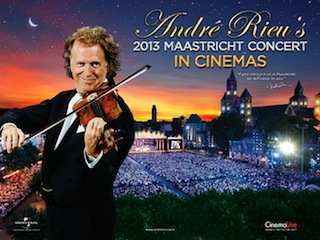 How many employees are there in your company and what are their roles?
How many employees are there in your company and what are their roles?
There are 12 of us:
Director & CEO: Peter Skillman
Director & Exec. Producer: Janelle Mason
Head of Distribution: Helen Jones
Acquisitions Manager: Jonny South
Financial Controller (based in Sydney): Natalie Kules
Finance Manager (based in London): Kirsty Nation
Distribution Co-ordinator (for AU/NZ only): Linda Thi
Production Manager: James Conway-Law
Designer & Website Manager: Jim Koh
DCP Creation & File Manger: Dan Farr
Administrative Assistant: Sophie Bush
Box Office Coordinator: Linda Mo
If this question is applicable, how many theatres are there in your network?
We distribute to all cinemas globally. We also have around 75 independent cinemas in Australia installed with CinemaLive owned satellite & decoder systems.
What particular niche does your company serve?
We have distributed a wide range of product including Opera, Ballet, Dance, Rock Concerts, Rock Documentaries, Classical Concerts, Pop and Childrens, but we consider our niche to be one-off premium events that require a significant level of production expertise. We are very good at working with our artists and assisting in producing quality fringe elements that can enhance the cinema experience for their fans.
How do you market your business?
 We make personal contact with as many potential clients and exhibitors as possible. Our track record is our best marketing asset and we find that we will often receive calls from referrals. We have good relationships with industry press, who help publicize our successes. We attend major conventions such as Cinema Con and Cine Europe. For the first few years, we set up a booth in the Trade Fair and found this was invaluable for becoming known as an alternative content provider in the early stages of this industry. Our website is an important marketing tool - we have a strong consumer-facing site, as well as a specific 'trade only' site for exhibitors, that includes marketing assets for all of our releases, across all territories.
We make personal contact with as many potential clients and exhibitors as possible. Our track record is our best marketing asset and we find that we will often receive calls from referrals. We have good relationships with industry press, who help publicize our successes. We attend major conventions such as Cinema Con and Cine Europe. For the first few years, we set up a booth in the Trade Fair and found this was invaluable for becoming known as an alternative content provider in the early stages of this industry. Our website is an important marketing tool - we have a strong consumer-facing site, as well as a specific 'trade only' site for exhibitors, that includes marketing assets for all of our releases, across all territories.
What are the questions that potential customers ask you?
If you mean customers, as in clients who may be investigating cinema as a possible revenue stream, then this is often very complex. Questions that often arise include potential number of cinemas, projected admissions, associated costs and expected revenue return. It's important to realize that potential clients may have a limited understanding as to how the business side of our industry operates, so we often have to talk through things like the exhibitor/client split, theatrical windows and VPFs.
What have been your biggest successes to date?
André Rieu's 2013 Maastricht Concert. We've just made Box Office History in the UK with the Highest Grossing Opening Weekend Takings for an Artist's Music Concert.
What kinds of content, if any, don't seem to find a viable audience?
That can be a difficult question to answer. I think both ourselves and our competitors have had content that they thought would be successful that has underperformed, while we have also had surprise successes. Recorded music content that has a very short window is already at a disadvantage – even with an 'A-list' act, unless there is some added exclusive component (usually live) to make it special enough to bring fans into the cinema, usually for one night only. For any music event it's important that there is a high level of fan engagement for a cinema event to work - and that's often difficult to calculate. For example, a band can have 10 million Facebook
'Likes', compared to a band with 500,000 - but if the less 'Liked' band has strong fan engagement, you will get a stronger box office result. Regardless of content, it also helps to have strong marketing support from the client, for example regular access to databases, social media channels and incorporation into their other promotional activities. It's the niche products or artists with a limited audience that struggle to get strong results, generally in a one night only screening. We do shy from music documentaries, unless they are connected to an add-on live event, like a red carpet premiere, or a live Q & A.
What success, if any, have you had with 3D programs?
We consider live 3D still in the experimental stage, so we haven't gone down this route as yet. Live, multi-camera 3D can be a bit hit & miss. Post produced 3D can look great and perform well if the product is right.
What other alternative content companies, if any, have you worked with?
We have strong working relationships with other distributors working in Event Cinema around the world. For example, we are currently partnering with Fathom Events in the USA, to launch our brand new West End Theatre series from October of this year.
What is your opinion of the term alternative content?
It really is an industry term. The general public doesn't know or use this language. Event Cinema seems to be substantially more consumer friendly.
How do you distribute content?
Live (or in some cases, 'as-live') via satellite. Recorded content is sent via DCP, whether that be via hard drive or via satellite.
What is your ticket-pricing model?
We agree with the cinema on a suitable pricing structure, based on the product. We know that cinemas know their own audience and trust them to make the right judgments here.
What technology issues, if any, need to be resolved for alternative content
to thrive and grow?
There needs to be a more cost effective distribution method. A lot of our events are 'one night only' yet our costs are the same as sending a feature that will screen for several weeks. We always have to consider this when deciding if we will take on a project. Satellite delivery can be tricky and we really need cinemas to actively participate in satellite testing and report problems before any event. Although not a technical issue, classification can also be a deciding factor
for us, as this can often be the difference between an event being profitable or non-profitable.
From your perspective, what is the biggest change in the alternative content business in the last ten years?
Product is becoming easier to acquire. For example, as more artists see the success of their peers, they become more willing to incorporate a theatrical release, either live or recorded, into their overall business plan. Also, exhibitors are getting far savvier in marketing these special one-off events to their local community, which becomes clear when analyzing box office returns. From a technical perspective, as cinemas release an increased number of satellite-delivered events, many cinemas are centralizing their receivers and appointing specific staff to manage these events, which has significantly reduced the number of technical problems for live or 'as-live' events.
How do you see alternative content evolving in the coming years?
Providing the trend continues, it will become stronger and stronger. As patrons discover they can see much more than movies at their local cinema, it will become an important destination for events.
D&E Entertainment
Please introduce yourself and your company. When was your company founded? What prompted you to enter this market?
I'm [Evan Saxon] a founding partner in D&E Entertainment along with Doug Kluthe. We started in 2005 and right off the bat had huge success bringing concert films by Duran Duran and Morrissey to the few digital theaters available. Selling out each one on a Tuesday night. It was unheard of at that time. The genesis of the biz was both my partner Doug Kluthe and I come from the music industry and saw a fantastic opportunity for artists to showcase their films in digital cinema, presenting an amazing experience for the fans and a comprehensive marketing plan to the record label and artist manager.
How many employees are there in your company and what are their roles?
We have three full time folks and hire out as needed on a per project basis:
Evan Saxon, partner
Doug Kluthe, partner
Melissa Ginn, director of marketing
If this question is applicable, how many theatres are there in your network?
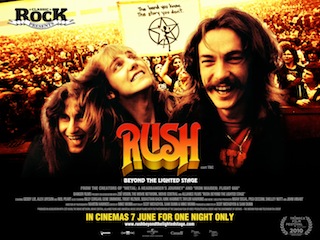 As we work with theaters that include the largest exhibitors in the US, Australia, Europe as well as key art house and indies, our network is well over 10,000 screens.
As we work with theaters that include the largest exhibitors in the US, Australia, Europe as well as key art house and indies, our network is well over 10,000 screens.
What particular niche does your company serve?
As we started out doing music based content, working with the caliber of artists that we have certainly gives a level of comfort to other clients. Now we've expended to include documentaries and some narratives as well. Our current films at CBGB and a very cool multi-media tour with artist Thomas Dolby.
How do you market your business?
We market our business in a variety of ways, but referrals seem to be the biggest asset we have.
What are the questions that potential customers ask you?
Many clients ask us about working with them in setting up all their downstream opportunities and becoming a one-stop rights management partner for their films.
What have been your biggest successes to date?
We've had a few great ones, but I'd say the documentary Rush: Beyond The Lighted Stage and Iron Maiden: Flight 666 have really filled theaters.
What kinds of content, if any, don’t seem to find a viable audience?
Some documentary films have a challenge finding a viable audience.
What success, if any, have you had with 3D programs?
We've not worked on many 3D projects
What other alternative content companies, if any, have you worked with?
We've worked with Arts Alliance and were the first company that AccessIT, now Cinedigm, did any Alternative Content with.
What is your opinion of the term alternative content?
Although we distribute much more than alternative content, I'm fine with the term.
How do you distribute content?
We distribute via Blu-ray (which is fantastic), DCP and satellite.
What is your ticket-pricing model?
This depends on the event.
What technology issues, if any, need to be resolved for alternative content to thrive and grow?
There needs to be more live distribution methods available. That will open up the door on many levels.
From your perspective, what is the biggest change in the alternative content business in the last ten years?
Theatres doing more marketing and embracing new types of content.
How do you see alternative content evolving in the coming years?
We see theaters actually expanding the offerings and bringing events into more prime time weekend slots as well. There will be more live interaction and increased marketing opportunities.
Emerging Pictures
Please introduce yourself and your company. When was your company founded? What prompted you to enter this market?
Emerging Pictures is a 10 year old company that is managed by two of its founders, myself [Ira Deutchman] and Barry Rebo. Barry’s background is in television, where he was a pioneer of high definition technology. Mine is in independent film marketing and distribution. Barry & I had known each other since the ‘80s, when I was at a company called Cinecom and Barry had the only high definition studio in the U.S. Cinecom had invested in an Italian film called Julia & Julia, which starred Kathleen Turner and Sting. It was the first feature film to be shot in high def. Barry had the only facility where we could watch the rushes. We stayed in touch over the years and re-connected at Sundance in 2001. Barry was fascinated with the idea that digital projection was becoming good enough to be used in theaters. We decided to go into business together.
How many employees are there in your company and what are their roles?
We have 14 full time people which includes technical staff, sales, marketing, accounting and content aquistion.
If this question is applicable, how many theatres are there in your network?
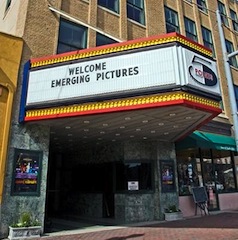 We have 170 locations that have an Emerging server in their booths. In addition, we deliver alternative content that we distribute into 140 multiplexes.
We have 170 locations that have an Emerging server in their booths. In addition, we deliver alternative content that we distribute into 140 multiplexes.
What particular niche does your company serve?
We specialize in “Event Cinema,” which can include cultural content, special events as well as what we call “syndicated festivals and series.” We also digitize and deliver just about every independent film that is released theatrically by the smaller indie distributors. On average, we have several hundred titles available at any given time.
How do you market your business?
On the B2B side, bringing on additional content and additional theaters is very much a direct sales and word of mouth activity. On the consumer side, we are heavily invested in social media and promotional activities with specific outreach to niche audiences. Our opera and ballet series have developed a strong following and many great promotional partners from local cultural organizations. We also have a great web site that aggregates all the bookings from all of our venue location so consumers can easily find what is playing neat them.
What are the questions that potential customers ask you?
Not sure which customers you mean…
What have been your biggest successes to date?
The ballet has had the biggest growth curve. While seeing ballet in a movie theater seems like it wouldn’t be that interesting, once audiences have experienced it, they keep coming back. With the Bolshoi, we have the strongest brand in the world, on par with the status of the Met in the opera world. We also recently released the Kenneth Branagh movie version of The Magic Flute, along with a live Q&A with Branagh from London. That was a big hit for us.
What kinds of content, if any, don’t seem to find a viable audience?
I would question whether there’s much of an audience for symphonies in movie theaters. Other than that, I think anything is possible. This is still a new business and there is inevitably more to be discovered.
What success, if any, have you had with 3D programs?
We haven’t done any 3D. We don’t think it adds enough additional sizzle to be worth the hassle. Of course, we’ll keep an eye on that to see if the climate changes.
What other alternative content companies, if any, have you worked with?
We’ve sub-distributed a few of our titles through Fathom and through Screenvision.
What is your opinion of the term alternative content?
I prefer Event Cinema.
How do you distribute content?
We do live via satellite, store forward via satellite and store forward via broadband.
What is your ticket-pricing model?
We price things differently depending on the content and the location of the venue. We work closely with the theater to come up with the right price for each program.
What technology issues, if any, need to be resolved for alternative content to thrive and grow?
Now that the industry is standardizing, it will only get easier and less expensive. It’s all good news.
From your perspective, what is the biggest change in the alternative content business in the last ten years?
The biggest change is that exhibitors now embrace the concept, whereas they were very resistant only a short number of years ago. Everyone understands that there are plenty of empty seats available in movie theaters that could be filled merely by mixing up the content a little bit. The only remaining resistance is from the studios who still insist that there be full runs of their films, in spite of the number of empty seats during the week. I believe this will eventually change.
How do you see alternative content evolving in the coming years?
My strong belief is that the theatrical exhibition business will eventually be nothing but alternative content. That’s why I prefer calling it Event Cinema. It can’t be alternative if there is nothing else.
Event Cinema Association
Please introduce yourself and your company. When was your company founded? What prompted you to enter this market?
My name is Melissa Keeping and I chair the Event Cinema Association, which was founded in September 2012. We are a non-profit trade association set up to promote alternative content in cinemas to the public, by rebranding it, giving it an identity and marketing it via various initiatives online and in cinemas. Our second objective is to support the event cinema (the name we gave alternative content) market by producing industry statistics, data, box office reports, and lobbying initiatives where necessary.
How many employees are there in your company and what are their roles?
We are a small start up at the moment, so it's myself and eight board directors, and a president. We also have some interns working on a part time basis.
What particular niche does your company serve?
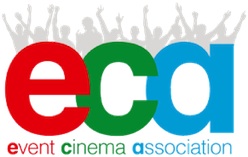 Event cinema is a new business that sprung up as an unforeseen consequence of digitization in cinemas, and has grown very organically and quickly especially over the last three-four years. The industry has a few well-known players, which have the marketing budgets to make them well known but the majority are operating on tight budgets with little or no money to market the content to the audience. The ECA helps bridge that gap and connect with the audience so that they get a taste of what's coming up in cinemas by seeing our generic ECA trailer which reaches audiences 4 times a year, and by checking out our listings website, www.livecinemaevents.com, launched in June this year. From a support perspective the ECA gives clarity, information and credibility to this new business by providing data collected from our members and turning it into industry reports, which in turn attracts investment and raises the profile of the sector. We are also producing a free handbook for download on our website about best practice for technical delivery, both live and recorded, audio and video, in order to provide impartial unbiased information to all, showing them what the procedures are, the options available and the standards they should aim for.
Event cinema is a new business that sprung up as an unforeseen consequence of digitization in cinemas, and has grown very organically and quickly especially over the last three-four years. The industry has a few well-known players, which have the marketing budgets to make them well known but the majority are operating on tight budgets with little or no money to market the content to the audience. The ECA helps bridge that gap and connect with the audience so that they get a taste of what's coming up in cinemas by seeing our generic ECA trailer which reaches audiences 4 times a year, and by checking out our listings website, www.livecinemaevents.com, launched in June this year. From a support perspective the ECA gives clarity, information and credibility to this new business by providing data collected from our members and turning it into industry reports, which in turn attracts investment and raises the profile of the sector. We are also producing a free handbook for download on our website about best practice for technical delivery, both live and recorded, audio and video, in order to provide impartial unbiased information to all, showing them what the procedures are, the options available and the standards they should aim for.
How do you market your business?
We market our business via our trailer, newsletters, trade show presence, the listings website www.livecinemaevents.com, advertising and social media, but word of mouth is starting to do a lot of that for us now - hurray!
What are the questions that potential customers ask you?
How can I meet x? Can you introduce me to y? How can I get my content on that trailer? Can I have a copy of that report? How do I get my listings on that website? When can we all get together? Can you send me information about your networking event? What are the forecasts for this industry? How much is the sector worth now and in 10 years?
What have been your biggest successes to date?
Our trailer is now in 2100+ cinema screens across Europe. Our listings website was an idea in 2011 and is now a reality (that's a personal success). We have 37 members from 14 territories including two from the US and one from South America. We are opening a US chapter within the next 6-12 months. Event Cinema is now the word people are using for alternative content. We set ourselves clear objectives at the beginning of September 2012 and 11 months in we have achieved them all except for one (we wanted 50 members and have 37, but we are only 11 months in, you never know your luck).
What kinds of content, if any, don’t seem to find a viable audience?
Orchestras can struggle - there are fans of course but I'm not sure they number enough to keep the genre going longterm. Gaming has potential that has yet to be exploited but it will get there eventually I am sure of it. Sport does really well in some territories and less so in others but that's down to commercial pressures like terrestrial and satellite tv rights as much as finding the audience - in Poland, cinemas like Multikino sell out championship football matches routinely. In the UK it's been harder to bring in audiences for a variety of reasons, many of them cultural - for example in the UK we're used to watching a match in a pub.
What success, if any, have you had with 3D programs?
Carmen 3D did very well, and the Mariinsky Ballet are producing 3D live ballet performances at the moment which are doing well - there are big technical challenges as well as high costs involved but the market is maturing and content providers and distributors understand much better what works and what doesn't. Overall though this is still a new business so bear in mind all of this has happened in less than 10 years.
What other alternative content companies, if any, have you worked with?
XDC Entertainment (now dcinex), Rising Alternative, RealD, CinemaLive and the Royal Opera House.
What is your opinion of the term alternative content?
It's meaningless. Alternative to what? It's only known within the industry and even there it's completely inadequate. Event Cinema is much better!
What technology issues, if any, need to be resolved for alternative content to thrive and grow?
It already is thriving and growing. It's predicted to be worth $1 billion by 2020. The best thing the industry can do for itself is share experiences and that's why things like the ECA Networking Event will hopefully become something useful for all involved, as well as the industry handbook and the reports we're producing. Box office data has long been missing but Rentrak and the ECA have done a deal to get this underway and we should have data for the UK and Ireland ready by September, with the rest of Europe rolling out over the coming 12 months.
From your perspective, what is the biggest change in the alternative content business in the last ten years?
Er, the ECA? Just kidding. Probably just time to grow and establish itself. It's now a revenue stream that exhibitors are recognizing and now investing in, with trained staff and Event Cinema departments, and whole seasons fully booked months in advance, now that would have been unthinkable 3 or 4 years ago. Now there is so much content out there and so many providers, and exhibitors realize the value in marketing the content to a niche market and are starting to accommodate this affluent new (and/or returning) audience, and cinemas in Europe anyway are remodeling their interiors to make them spaces where people actually want to spend time, enjoy a glass of wine and a light meal. Architects and town planners and exhibitors are realizing the value of a boutique cinema in towns and the regeneration that this can stimulate in our blighted town centers - I'm sure this applies to towns all over the US too.
How do you see alternative content evolving in the coming years?
More of the above, but I think music has yet to really hit the screens and we'll be seeing a lot more live music events from big name acts worldwide. Museums and art galleries and arts institutions will be getting in on the act very soon now that Pompeii Live has been such a success, and that is wonderful for the industry, but even better for cinemas and audiences who maybe can't get to the exhibition, wherever it is, itself. The industry will continue to thrive and evolve and it will attract a lot of investment especially now that data is becoming available to investors for the first time.
NCM Fathom
Please introduce yourself and your company. When was your company founded?
Fathom Events is a leader in the alternative entertainment industry, offering a variety of one-of-a-kind entertainment events in movie theaters nationwide since 2002 including live, high-definition performances of the Metropolitan Opera, sports, music, Broadway and many other unique entertainment presentations. Fathom Events has recently added comedy programming to the alternative entertainment line-up.
What prompted you to enter this market?
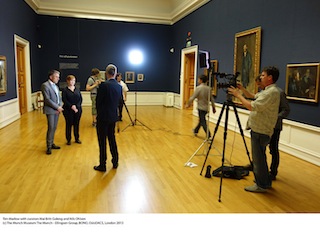 Fathom Events was created to make the best use of the networked theater venues primarily during non-peak movie-going times and to help develop incremental revenue opportunities. By doing this, Fathom takes advantage of the best of what movie theaters offer: the biggest screens, the best sound and the best seats and brings events to fans in a convenient and affordable venue.
Fathom Events was created to make the best use of the networked theater venues primarily during non-peak movie-going times and to help develop incremental revenue opportunities. By doing this, Fathom takes advantage of the best of what movie theaters offer: the biggest screens, the best sound and the best seats and brings events to fans in a convenient and affordable venue.
How many employees are there in your company and what are their roles?
Fathom Events is a division of National CineMedia with about 20 employees making up business development, programming, business management, marketing and public relations. It is headed by Shelly Maxwell, the executive vice president of Fathom Events.
If this question is applicable, how many theatres are there in your network?
The NCM Fathom Events broadcast network reaches more than 1,500 select movie theaters nationwide.
What particular niche does your company serve?
Fathom serves to provide entertainment for affinity groups who would otherwise not be able to experience the entertainment the way it is offered by Fathom. That is the niche that Fathom fills for communities nationwide…from Opera aficionados to Broadway fans…Music enthusiasts to those who are passionate about issues involving their world. Fathom provides a unique opportunity to share entertainment experiences, affordably and conveniently with “like-minded” enthusiasts.
How do you market your business?
NCM Fathom Events markets its events through many marketing and PR platforms such as event trailers, digital social media, grassroots outreach and publicity. Our social media following has grown in the last year which helps raise awareness, other digital marketing efforts include media buys, mobile marketing and search engine marketing. We also conduct grassroots outreach with other organizations that have a similar market associated with our event (i.e., running clubs for “Spirit of the Marathon II,” boxing clubs for boxing events, etc). Together with the content provider’s PR team, the Fathom PR team (including external PR agency) secures local and national stories for events, generating awareness. We also work with our circuit partners that include marketing such as consumer handouts and community outreach, theater manager incentives, website and email support.
What are the questions that potential customers ask you?
The biggest question we get from consumers is…. “I had no idea you were doing this in movie theaters…when did you start this and what are you doing next?” Given the organic development of the Fathom business, the financial model does not support large, mass-media promotions and advertising spends to generate awareness. In order to keep the entertainment Fathom offers affordable we have relied heavily on our fans’ experience and subsequent word of mouth advertising. This approach has served both our fans and Fathom well.
What have been your biggest successes to date?
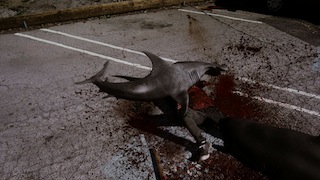 In general, events and topics that connect the big screen to the passion fans have for a particular area of interest have always performed well. As two key examples, The Met: Live in HD series and DCI (Drum Corps International Competitions) continue to be very popular annual series. The 2013-14 season marks the eighth season of the Met and the semi-finals of DCI will be broadcast for the 10th consecutive year. Events with social/civic relevance such as Glenn Beck’s Unelectable, I.O.U.S.A (featuring Warren Buffet), and Kirk Cameron’s Monumental have transformed theaters into national town halls. Radio programs coming to life of the big screen such as This American Life, A Prairie Home Companion and Wait Wait… Don’t Tell Me are proving to be programs that fans want to experience annually in theaters. In many cases we have found that a “sub-culture” of fans exist for a particular type of event where their ability to experience it as communities only exists in movie theaters.
In general, events and topics that connect the big screen to the passion fans have for a particular area of interest have always performed well. As two key examples, The Met: Live in HD series and DCI (Drum Corps International Competitions) continue to be very popular annual series. The 2013-14 season marks the eighth season of the Met and the semi-finals of DCI will be broadcast for the 10th consecutive year. Events with social/civic relevance such as Glenn Beck’s Unelectable, I.O.U.S.A (featuring Warren Buffet), and Kirk Cameron’s Monumental have transformed theaters into national town halls. Radio programs coming to life of the big screen such as This American Life, A Prairie Home Companion and Wait Wait… Don’t Tell Me are proving to be programs that fans want to experience annually in theaters. In many cases we have found that a “sub-culture” of fans exist for a particular type of event where their ability to experience it as communities only exists in movie theaters.
The following are a few examples:
Star Trek: The Next Generation
Springsteen & I rockumentary
RiffTrax Live: Starship Troopers – Aug. 15
Eric Clapton’s Crossroads Guitar Festival 2013
What kinds of content, if any, don’t seem to find a viable audience?
Virtually all content has an audience. Finding and reaching underserved audiences that want to share an entertainment experience with others in a theater setting is the key. Seven successful seasons of the Metropolitan Opera underscores this. Alternative content is still a new and emerging business and there is much yet to be discovered.
What success, if any, have you had with 3D programs?
We have tried several in programs in 3D including the 2012 World Cup, Wimbledon, UFC and ballet. They have all yielded good results but in context, the limited scale currently available for live 3D events is very small as this technology is still in its earliest stages.
What other alternative content companies, if any, have you worked with?
At some point over the past decade we have worked with all of them. Creating strong alliances has served to bring fans the best in available content while creating a standard of quality for all involved in this space.
What is your opinion of the term alternative content?
At present it describes what we offer in theaters versus the traditional theatrical movie releases that have multiple runs over a period of weeks. Our entertainment content is exclusive and limited, generally one or two nights only. Additionally, many of our events are live which makes them an alternative experience. In the long run we believe that the term ”alternative content” will fade away as theater events continue to grow in frequency, relevance and awareness in the theaters and communities they serve.
How do you distribute content?
NCM Fathom broadcasts events to movie theaters utilizing NCM’s digital content network (DCN) - the largest digital in-theater network in North America. The DCN technology allows for the targeted distribution of content for NCM’s cinema advertising and events businesses to AMC Entertainment Inc., Cinemark Holdings, Inc., Regal Entertainment Group and other network affiliated movie theaters across the United States. Through the DCN, Fathom distributes live and pre-recorded music events, sporting events and other entertainment programming to approximately 750 theaters however, we have the ability to reach more than 1,500 select movie theaters nationwide.
What is your ticket-pricing model?
Event prices range from $12 to $25.
What technology issues, if any, need to be resolved for alternative content to thrive and grow?
Technology development is key in allowing the distribution of multiple forms of alternative content over literally thousands of screens, which will expand our business exponentially.
From your perspective, what is the biggest change in the alternative content business in the last ten years?
A lot. Ten years ago it virtually did not exist. Digital technology and vision were the key drivers. National CineMedia took advantage of this digital emergence by interconnecting thousands of screens across the country via the creation of an in-theater network to specifically dispense and distribute advertising and alternative content (non-movie content) to movie theaters nationwide.
How do you see alternative content evolving in the coming years?
The future of alternative content in movie theaters is extremely promising. As we have grown over the years, fans have come to expect alternative content events in their local movie theaters. At the same time, more and more alternative content is being created for theaters based on the success we have seen. In essence, we have been able to transform theaters into “local community event centers” and as long as fans have a passion for the things that have relevance in their lives and content is created to ignite that passion, alternative content in movie theaters will become an even greater part of the value proposition of the local movie theater.
Rising Alternative
Please introduce yourself and your company. When was your company founded? What prompted you to enter this market?
Rising Alternative was founded in 2009 by Giovanni Cozzi, co-founder of Emerging Pictures to expand the international distribution of alternative content that was distributed in North America by EP. The company now operates out of offices in New York, Berlin, Barcelona and Milan and is the international distributor for the productions from many of Europe's most prestigious cultural institutions such as La Scala, the Salzburg Festival, the Wiener Staaatsoper, Madrid's Teatro Real, Barcelona's Liceu, the Arena di Verona and many other Italian Grand Opera companies as well as in some territories the Opera de Paris. Recently in 2013 Rising Alternative has begun distribution of the Opera de Paris and Salzburg Festival in North America as well.
How many employees are there in your company and what are their roles?
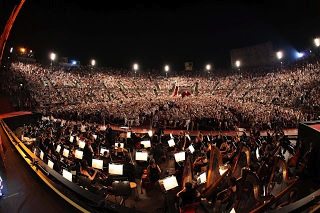 The company has as staff of five full time and three independent sales agents.
The company has as staff of five full time and three independent sales agents.
If this question is applicable, how many theatres are there in your network?
Since beginning in 2009, Rising Alternative has provided programs to 1224 cinemas in 42 countries.
What particular niche does your company serve?
Mainly cultural alternative programs for cinemas but starting this August with plays, contemporary music and children's programs.
How do you market your business?
It is a B2B. We only market to cinema venues; they do the consumer marketing. We are present at most trade shows or travel directly to visit/work with each client at their location.
What are the questions that potential customers ask you?
How do I make money with this? Answer: This is a new successful business issue. Cinemas owners do not care about the content itself as they do about movies. This is just more business in weak time slots and they want someone else to do all the planning and execution
What have been your biggest successes to date?
France and Spain distribution: seasons planned and marketed with partners early give weekday averages in excess of 200 patrons per show in France and 80+ in Spain.
What kinds of content, if any, don’t seem to find a viable audience?
Difficult less known titles without stars. Audiences still want just popular titles and well-known performers.
What success, if any, have you had with 3D programs?
We have released the first 3D opera this year to good average audiences (120+) but very few cinemas. Cinemas are not convinced about 3D opera.
What is your opinion of the term alternative content?
Even though our company has the word alternative in it the term is wrong: it should be additional content since it is additional business and not an alternative to film.
How do you distribute content?
Mainly live via satellite and on DCP.
What is your ticket-pricing model?
We suggest two to three times the price of a film, since the programs are special events that take two or three film sessions away and the margins are tighter for the cinemas.
What technology issues, if any, need to be resolved for alternative content to thrive and grow?
DCP delivery is still inefficient and lower quality delivery formats not ideal for big screen and security.
From your perspective, what is the biggest change in the alternative content business in the last ten years?
Much more content available, much more competition for screen time.
How do you see alternative content evolving in the coming years?
Other programs will use event model of alternative content distribution. Example: indie films and documentaries will be distributed this way. Live component will be part of more programs as two-way technology allows it; mix of live and recorded programs. Performers/artists will participate more personally in the events. More events will be live worldwide.
